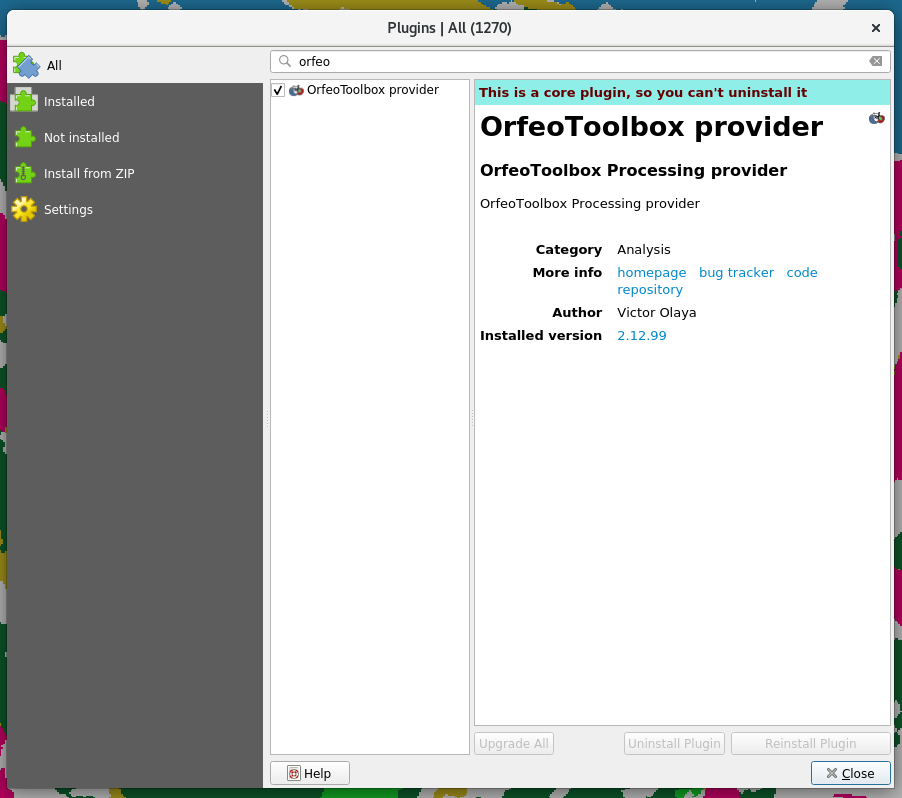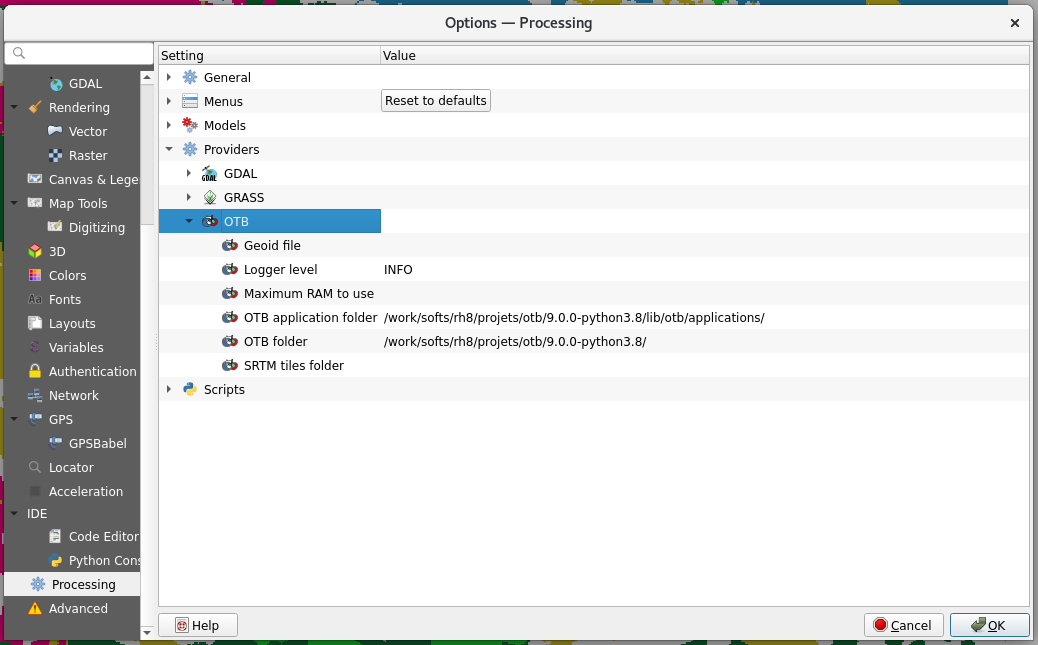Tips and Tutorials \ How to configure OTB in QGIS
Learn how to configure and launch Orfeo ToolBox applications in QGIS
Type: Tip
Categories: Visualization Tools
Motivation
Orfeo ToolBox is quite easy to use through its graphical interfaces in QGIS. This page drives you through the basics of OTB configuration in QGIS.
Check where OTB is installed
QGIS shall be installed on your system and you have to know where OTB is installed.
$> which otbcli_Superimpose
/work/softs/rh8/projets/otb/9.0.0-python3.8/bin/otbcli_Superimpose
OTB folder is /work/softs/rh8/projets/otb/9.0.0-python3.8/ and OTB application folder is /work/softs/rh8/projets/otb/9.0.0-python3.8/lib/otb/applications/ (or "OTB folder"/lib/otb/applications/).
Install or activate OTB plugin and then configure it
Depending on your QGIS version, OTB plugin is already installed (until 3.34) or not. OTB documentation gives you some (https://)[compatibility information].
Note for TREX users : if you connect through ssh on TREX, you need to load OTB (module load otb) before lauching QGIS.
To install and activate it, follow these steps in QGIS:
- select "Plugins > Manage and install plugins"
- look for orfeo toolbox plugin
- select (tick) the plugin to install and activate it

Then, you have to configure it:
- select "Settings > Options"
- go to the "processing" page, open providers list
- set OTB application folder and OTB folder
- close the window
- open "processing panel" and select "Processing Toolbox"
- go to this panel and select your OTB application!

You can now play with all OTB applications:
- select an application (filter by name or module)
- set input / output images (can be a virtual / in-memory file)
- set parameters
- launch execution .. and display result!
Contacts
Questions ? Get help on the Forum
